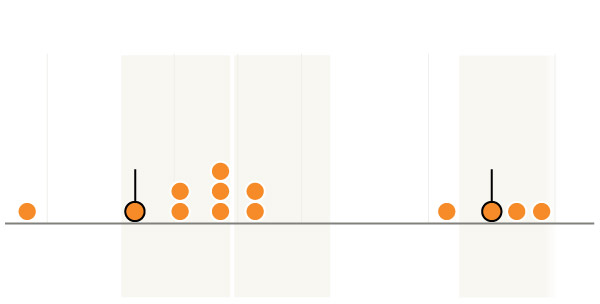
1940
1960
1980
2000
2020
Major OVERTURNED PRECEDENTS
Brown v. Board
of Education
Citizens United
v. FEC
Warren
court
Burger
Roberts
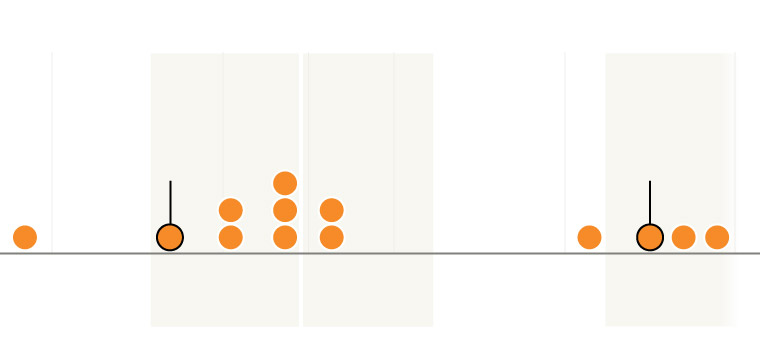
1940
1960
1980
2000
2020
Major OVERTURNED PRECEDENTS
Citizens
United
v. FEC
Brown v. Board
of Education
Warren
court
Burger
Roberts

1940
1960
1980
2000
2020
Brown v.
Board
of Education
Loving v. Virginia
Citizens
United
v. FEC
Major
OVERTURNED
PRECEDENTS
Warren court
Burger
Roberts
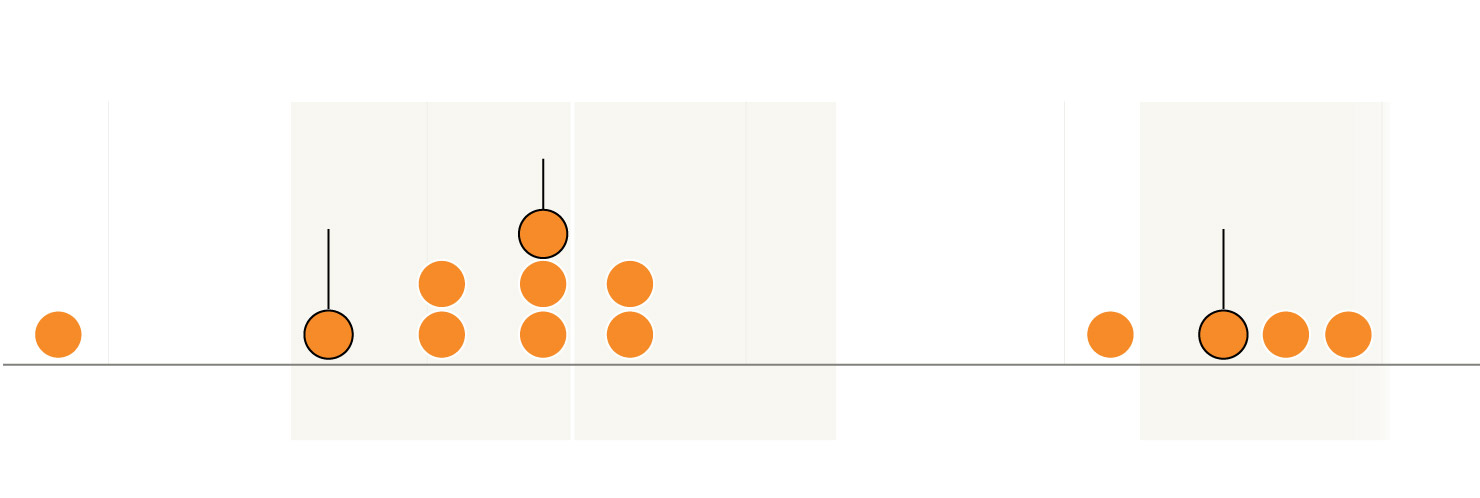
1940
1960
1980
2000
2020
Brown v.
Board
of Education
Loving v. Virginia
Citizens
United
v. FEC
Major
OVERTURNED
PRECEDENTS
Warren court
Burger
Roberts
From the mid-1950s through the mid-1970s, the Supreme Court reversed its own positions in ways that dramatically reshaped the country on civil rights, freedom of speech and protections for criminal defendants. The current court under Chief Justice John G. Roberts Jr. has similarly reversed some decades-old decisions.
Throughout its history, there have been 13 key cases addressing constitutional rights where the Supreme Court has thrown out major precedents that had stood for at least 10 years, according to scholars interviewed by The Washington Post.
The burst of activity around the 1960s was led by a liberal majority that was eventually tempered by President Richard Nixon’s appointment of Chief Justice Warren Burger and three other justices. In the following decades, the court lacked a stable majority, so centrists set the course by moving slightly from one side to the other.
[The widening gap in abortion laws in this country]
With President Trump’s two appointees, the court may have a stable majority for the first time in decades. The possibility is prompting Alabama, Missouri, Kentucky and other states to push antiabortion laws that they hope will lead the court to reconsider Roe v. Wade.
17 abortion decisions in 46 years
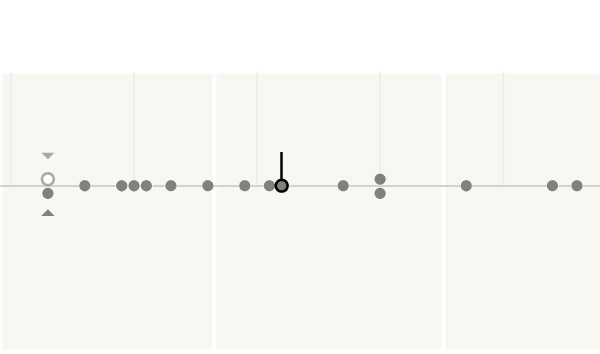
2000
2010
1970
1980
1990
Roe v. wade
PRECEDENT SET
Planned Parenthood
v. Casey
FURTHER RULINGS BASED
ON ROE V. WADE
Burger court
Rehnquist
Roberts
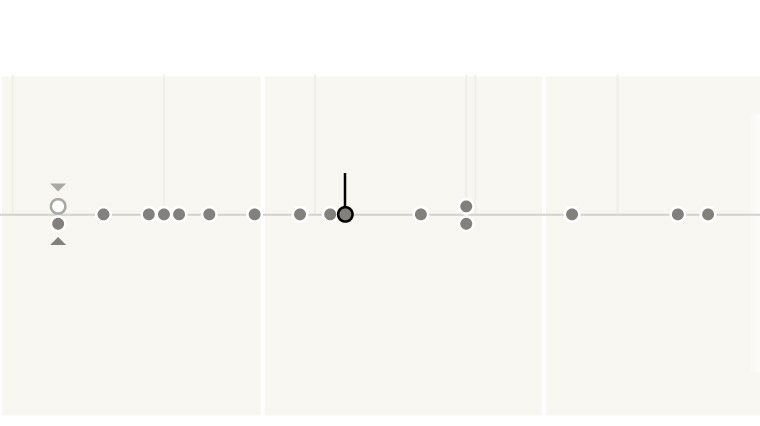
2000
2010
1970
1980
1990
Planned Parenthood
v. Casey
Roe v. wade
PRECEDENT SET
FURTHER RULINGS BASED
ON ROE V. WADE
Burger court
Rehnquist
Roberts
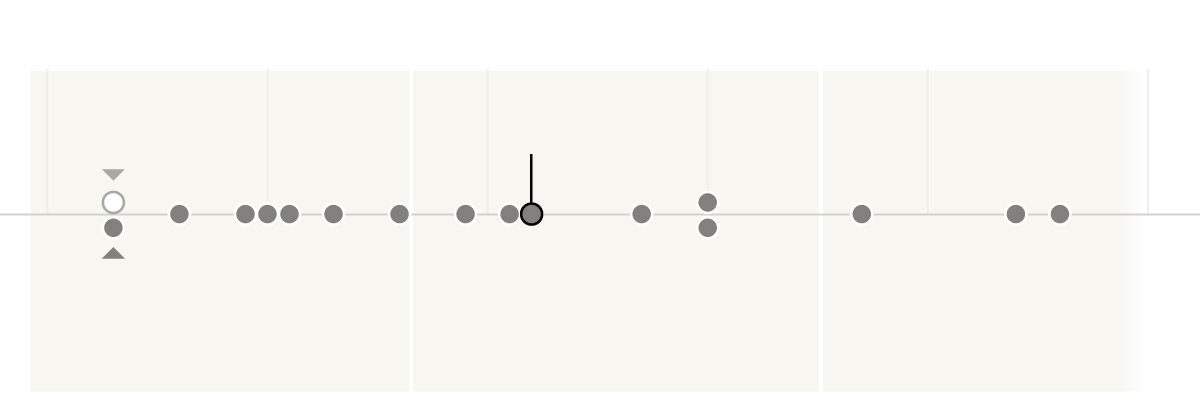
2000
2010
2020
1970
1980
1990
Planned Parenthood
v. Casey
Roe v. wade
PRECEDENT SET
FURTHER RULINGS BASED
ON ROE V. WADE
Burger court
Rehnquist
Roberts

2000
2010
2020
1970
1980
1990
Planned Parenthood
v. Casey
Roe v. wade
PRECEDENT SET
FURTHER RULINGS BASED
ON ROE V. WADE
Burger court
Rehnquist
Roberts
Including the Roe decision, the Supreme Court has ruled on at least 17 cases involving abortion rights since 1973. The Roe ruling created a right to an abortion through an implied constitutional right to privacy, and a second case released the same day, Doe, bolstered the importance of protecting the woman’s health as a basis of abortion rights.
The possibility of overturning Roe has been raised for decades. In a 1989 case, Justice Antonin Scalia called for overturning Roe (Webster). In a 1992 case, Planned Parenthood v. Casey, four members of the court said they would have effectively overturned Roe. The court’s majority reaffirmed the right to abortion and said states could apply restrictions that do not create an undue burden. Justice Clarence Thomas, the only remaining member of that court, has repeatedly said Roe was a mistake.
Chief Justice John Roberts’s court
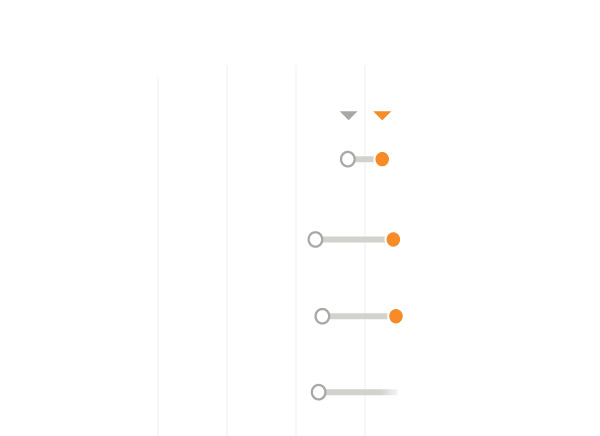
1880
1920
1960
2000
Precedent set
Overturned
Citizens United v.
Federal Election
Commission
Austin v. Michigan State
Chamber of Commerce
Obergefell v.
Hodges
Baker v. Nelson
Abood v. Detroit
Board of Education
Janus v. AFSCME
Council 31
Roe v. Wade
Still law

1880
1920
1960
2000
Precedent set
Overturned
Citizens United v.
Federal Election
Commission
Austin v. Michigan State
Chamber of Commerce
Obergefell v.
Hodges
Baker v. Nelson
Janus v. AFSCME
Council 31
Abood v. Detroit Board of Education
Still law
Roe v. Wade

1880
1900
1920
1940
1960
1980
2000
2020
Precedent set
Overturned
Citizens United v.
Federal Election Commission
Austin v. Michigan State Chamber of Commerce
Baker v. Nelson
Obergefell v. Hodges
Janus v. AFSCME
Council 31
Abood v. Detroit Board of Education
Roe v. Wade
Still law

1880
1900
1920
1940
1960
1980
2000
2020
Precedent set
Overturned
Citizens United v.
Federal Election Commission
Austin v. Michigan State Chamber of Commerce
Baker v. Nelson
Obergefell v. Hodges
Janus v. AFSCME
Council 31
Abood v. Detroit Board of Education
Roe v. Wade
Still law
In the 14 years since Chief Justice John Roberts was appointed in 2005, the court has reversed several major precedents involving constitutional rights. In 2010, the court allowed increased campaign spending, including spending by companies, on the grounds that contributions are protected speech (Citizens United). The court also ruled that there is a constitutional right to same-sex marriage (Obergefell, 2015). Former justice Anthony M. Kennedy wrote those opinions. A conservative who sometimes sided with liberals on rights cases, he left the court last year.
More recently, the court said that unions can’t require workers who don’t join the union to pay dues, even if they’re covered under the union contract (Janus, 2018).
Civil rights, free speech and defendant rights
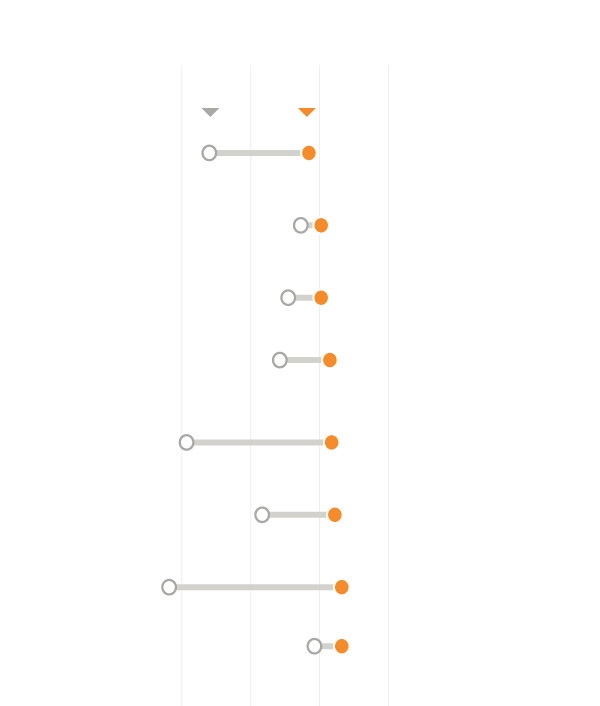
1880
1920
1960
2000
Precedent set
Overturned
Brown v. Board
of Education
Plessy v. Ferguson
Mapp v. Ohio
Wolf v. Colorado
Gideon v. Wainwright
Betts v. Brady
Harper v. Virginia State
Board of Elections
Breedlove v. Suttles
Loving v. Virginia
Pace v. Alabama
Brandenburg v. Ohio
Whitney v. California
Bradwell v.
State of Illinois
Frontiero v. Richardson
Miller v. California
Roth v. United States
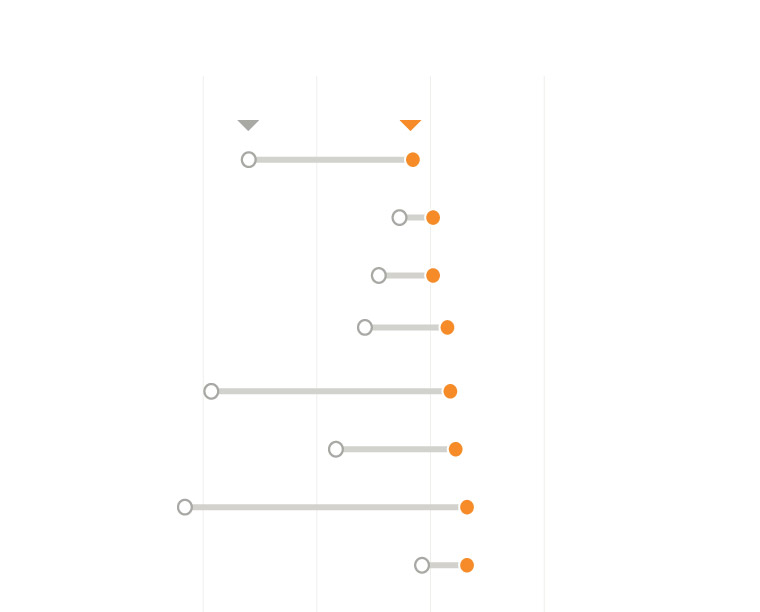
1880
1920
1960
2000
Precedent set
Overturned
Plessy v. Ferguson
Brown v. Board of Education
Wolf v. Colorado
Mapp v. Ohio
Betts v. Brady
Gideon v. Wainwright
Harper v. Virginia State
Board of Elections
Breedlove v. Suttles
Pace v. Alabama
Loving v. Virginia
Whitney v. California
Brandenburg v. Ohio
Bradwell v.
State of Illinois
Frontiero v. Richardson
Roth v. United States
Miller v. California

1880
1900
1920
1940
1960
1980
2000
2020
Precedent set
Overturned
Plessy v. Ferguson
Brown v. Board of Education
Wolf v. Colorado
Mapp v. Ohio
Betts v. Brady
Gideon v. Wainwright
Breedlove v. Suttles
Harper v. Virginia State Board of Elections
Pace v. Alabama
Loving v. Virginia
Whitney v. California
Brandenburg v. Ohio
Bradwell v.
State of Illinois
Frontiero v. Richardson
Roth v. United States
Miller v. California

1880
1900
1920
1940
1960
1980
2000
2020
Precedent set
Overturned
Plessy v. Ferguson
Brown v. Board of Education
Mapp v. Ohio
Wolf v. Colorado
Betts v. Brady
Gideon v. Wainwright
Breedlove v. Suttles
Harper v. Virginia State Board of Elections
Pace v. Alabama
Loving v. Virginia
Whitney v. California
Brandenburg v. Ohio
Bradwell v.
State of Illinois
Frontiero v. Richardson
Roth v. United States
Miller v. California
The activist courts under Chief Justice Earl Warren and the beginning of the term of Warren Burger changed the law in many ways, tossing out court opinions that had blocked civil rights and free speech. In Brown v. Board of Education in 1954, the court overturned legalized segregation that had been upheld by the court almost six decades earlier. In 1966 and 1967 the court threw out poll taxes that were used to keep African Americans from voting (Harper) and anti-miscegenation laws that prohibited interracial marriage (Loving). In 1973, the court limited discrimination against women (Frontiero).
During that time frame, the court also expanded free speech, protecting inflammatory statements that don’t directly incite violence (Brandenberg) and creating much looser limits on obscenity (Miller). It also overturned previous opinions that said the Constitution’s limits on police power applied only to the federal government, applying stricter rules to local police searches (Mapp) and granting defendants in state courts the right to a lawyer (Gideon).
Other major reversals

1880
1920
1960
2000
Precedent set
Overturned
West Coast Hotel v. Parrish
Lochner v. New York
Lawrence v. Texas
Bowers v. Hardwick

1880
1920
1960
2000
Precedent set
Overturned
Lochner v. New York
West Coast Hotel v. Parrish
Bowers v. Hardwick
Lawrence v. Texas

1880
1900
1920
1940
1960
1980
2000
2020
Precedent set
Overturned
Lochner v. New York
West Coast Hotel v. Parrish
Bowers v. Hardwick
Lawrence v. Texas

1880
1900
1920
1940
1960
1980
2000
2020
Precedent set
Overturned
Lochner v. New York
West Coast Hotel v. Parrish
Bowers v. Hardwick
Lawrence v. Texas
One of the most famous reversals happened when the court was being put under presidential pressure. In 1905, the court threw out state minimum wage and overtime laws (Lochner), saying that employees were free to make whatever deal they wanted with their employers. That ruling was used to overturn many worker safeguards over the next 30 years.
When President Franklin Delano Roosevelt was trying to implement his New Deal during the Depression, the court repeatedly blocked him on grounds that he exceeded his constitutional powers. Roosevelt was so exasperated he proposed expanding the court so he could fill it with his own judges. The “court packing” plan never worked, but the court suddenly became friendlier to his proposals and overturned Lochner to allow worker protections.
There was only one major reversal on rights during the 37 years after the spurt of activity that ended in the 1970s. In the wake of the brutal murder of Matthew Shepard because he was gay, the court overturned anti-sodomy laws that made homosexuality illegal (Lawrence, 2003.)
Roberts court on abortion
While it has not overturned Roe, the court under Roberts has twice rolled back abortion-rights protections that had previously been supported by the Supreme Court. In the first, the court allowed a federal ban on the late-pregnancy procedure called partial-birth abortion (Gonzalez, 2007), the first time in the post-Roe era that the court banned a particular procedure. It reversed a ruling from seven years prior when the court under Chief Justice William Rehnquist had rejected a Nebraska ban on partial-birth abortion (Stenberg, 2000).
More recently, the Roberts court threw out a Massachusetts buffer law that kept protesters away from clinic entrances (Coakley, 2014). A Colorado limit on protesters had been approved in 2000 (Hill). Three judges called for throwing out Hill, altogether, but the liberals joined the conservatives in finding that the buffer was so large it violated the protesters’ First Amendment rights.
In its most recent abortion case, the court said Texas had gone too far with restrictions on clinics and doctors (Whole Women’s Health, 2016). Several cases are pending that could allow judgments on restrictions, or provide a window for overturning the law altogether.
About this story: Case information from Georgetown Law School professor Susan Bloch, University of Pennsylvania Law School professor Kermit Roosevelt, University of Virginia Law School professor A.E. Dick Howard, US Conference of Catholic Bishops, Pew Research Center, SCOTUSblog.






